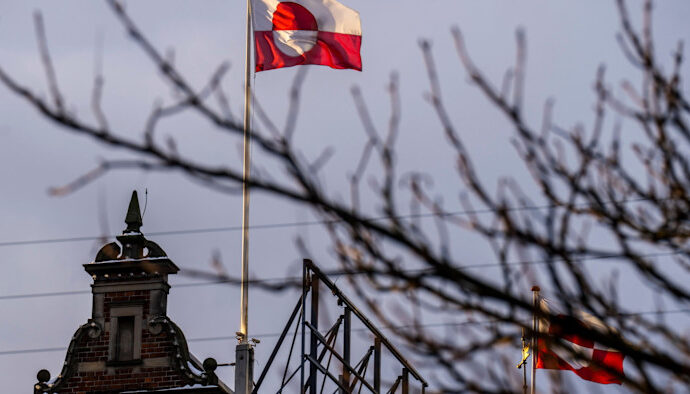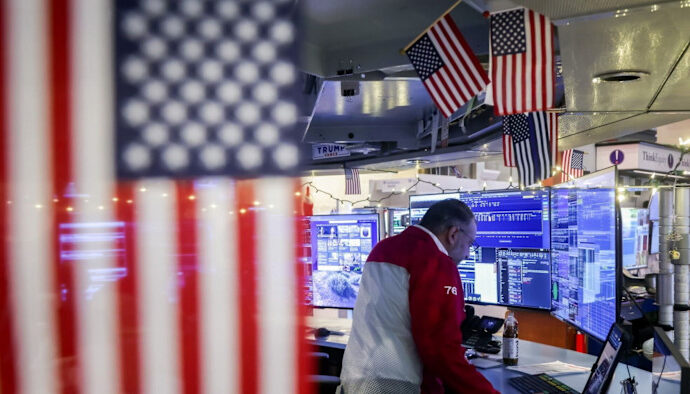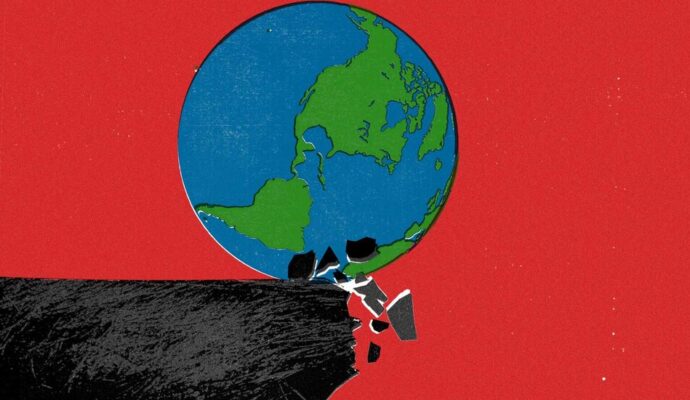Unlock the Editor’s Digest for free
Roula Khalaf, Editor of the FT, selects her favourite stories in this weekly newsletter.
The writer is executive director of Gateway House: the Indian Council on Global Relations
India’s IT services companies were hit a thunderbolt from the White House last week when it announced that the H-1B visa that has carried thousands of professionals from the country to the US will now entail a fee of $100,000 per employee.
Shares in the IT sector took an immediate knock, dropping about 7 per cent since the news emerged. But it could have perhaps been foreseen. After the US imposed a 50 per cent tariff on merchandise goods from India, services couldn’t be far behind, particularly given how H-1B visas are a source of contention among some US politicians.
H-1Bs have been blamed for the outsourcing of technology jobs with Indian companies on contract with American clients bringing their own workers to the US on such visas do the job in situ. This has been ongoing for more than three decades, first with banking and financial services — the early globalisers — then industries such as insurance, hospital systems. The outsourcing to lower cost workers either located in India or brought over from India, became normalised.
Over the years, Indians captured 71 per cent of the annual 65,000 H-1B visas issued. Indian IT services providers, such as Infosys, Tata Consultancy Services, HCL and Wipro, have been heavy users of H-1Bs along with an array of multinationals and technology companies.
The US Equal Opportunity Commission is investigating complaints that US and Indian companies fire older American workers in favour of “newly hired South Asian H-1B employees” and two US Senators have begun investigations into job postings being skewed in favour of H-1B holders, leaving American citizens at a disadvantage. And given that over time, the “temp” workers on H-1Bs naturally seek green cards and citizenship, it was a natural target for US President Donald Trump as a migration issue.
Indian companies will now be scrambling to change their model but they should have done it earlier. Outsourcing has done well for four decades, riding a wave of globalisation like China did with manufacturing. It transformed India’s fortunes but in the era of AI and Trump, its time may be passing.
Indian tech executives, with their outsized clout with the Indian government, have no doubt already begun to lobby for their government to exchange other favours to keep the H-1Bs. But it’s unlikely that Indian Prime Minister Narendra Modi will, say, provide greater access to US agricultural imports to India to support IT services in the ongoing India-US trade talks.
The IT companies would be better off investing more in research and development for future business, making smart acquisitions and building a model for their home market of 1.4bn people. The top five Indian IT firms had free cash flows of nearly $13bn in the 2023-24 financial year, according to HFS Research. And Infosys said on September 11 it had approved a $2bn share buyback offer — a week before the Trump order. Yet the R&D to sales ratio for India’s IT industry is abysmal: 0.88 per cent on average, according to a 2024 report by India’s Ministry of Corporate Affairs. In today’s hyper competitive era, innovation is the driver of growth along with talent and branding.
The key for India now is to encourage the talent to come back home, build domestic capabilities and detach its strategic direction from a third country’s visa policy. Some Indian corporate groups such as Adani have put out the welcome mat for returning H-1B visa holders, but New Delhi has been slow to respond. India’s 2017 Vajra scheme to attract Indian expatriate scientists and academics has had just over 100 advanced scholars participate, and produced six patents, despite the generous $10,000-15,000 monthly funding.
Other countries have been swift to woo India’s H-1B talent since the fee was announced, led by Germany and Canada. China’s government also has sought to attract talented individuals through the “K” visa. Doubtless some Indians will accept the generous offers of lab access, housing subsidies, relocation grants, tax incentives, job-matching services.
The perceived adversity caused by Trump’s announcement is an opportunity for India. A new generation of ambitious Indian technologists is on the rise, often using the country’s innovative digital public infrastructure to create new enterprises including areas like fintech and defence. India now has 123 unicorns, start-ups valued at more than $1bn, according to Tracxn. They won’t be shedding tears for the restrictions on H-1B visas.


